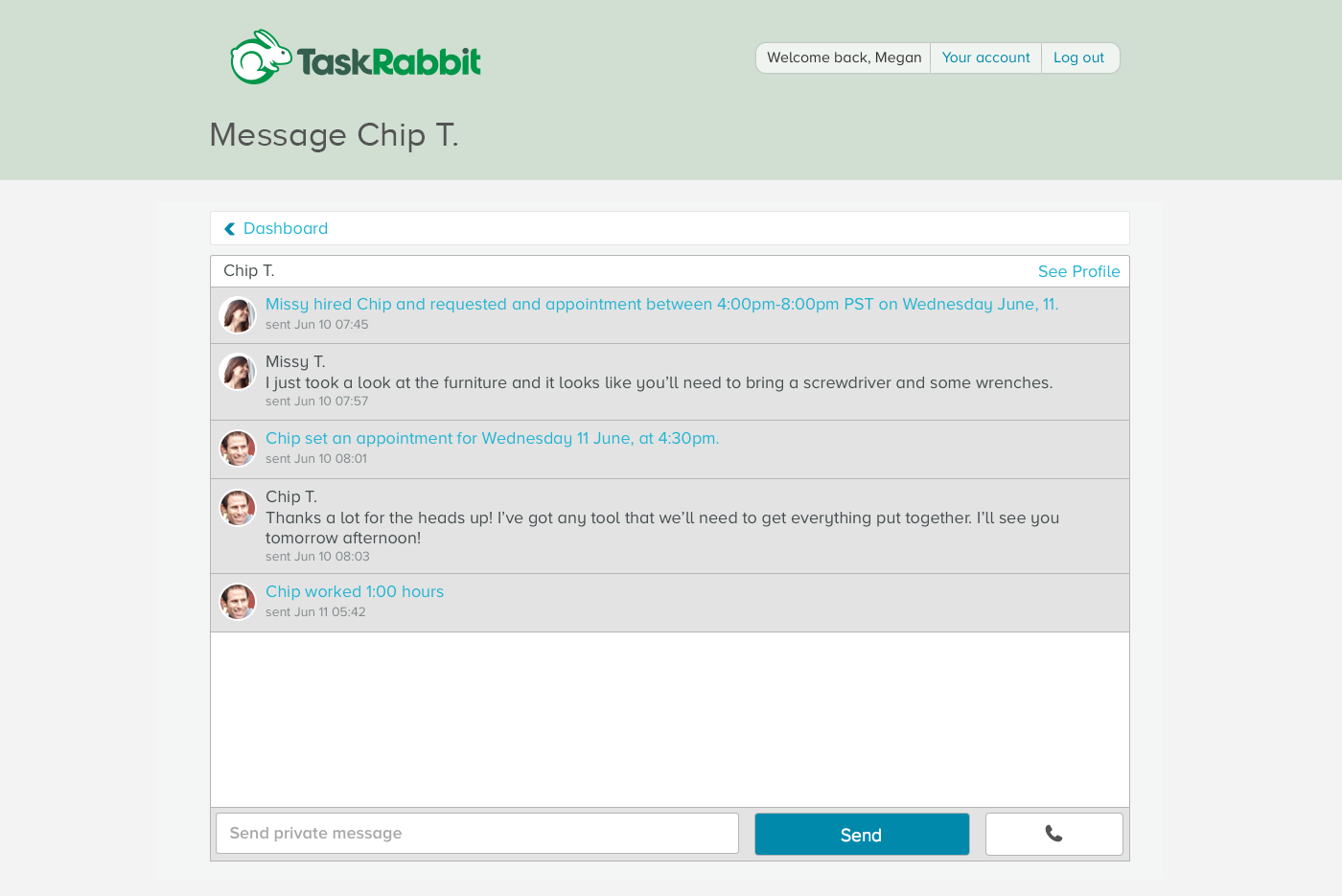
They have to bring their own healthcare, liability insurance, and materials. Taskers are considered independent contractors. Earnings for most full-time service providers on the platform and part-timers will look much less attractive. Pre-tax earnings *can* range up to $6-7K for full-time ‘elite’ Taskers who have made a name for themselves on the platform. The company states that the average Task Rabbit earns $35/hour – when they are working. Taskers get to chose which services they would like to offer, what their hour rates are for each of them, and which individual jobs they want to take on. On the contractor side, the platform creates value by offering a flexible source of income to almost anyone. They don’t need to wait at home with lumps of cash and get at least an option for recourse in case the work turns out to be of insufficient quality at a later point. This is not only convenient for most customers, but also safer.

Goal is to ease the customers worry about damages that could incur from having an under qualified stranger in their home. They offer limited coverage for property damage, bodily injury, or Theft of property up to $10,000.
TASKER ON TASKRABBIT SERIES
Pathways to a Just Digital Future Watch this tech inequality series featuring scholars, practitioners, & activists TaskRabbit accomplishes this though various means: Beyond that, let’s look at how TaskRabbit creates value for each side of the marketplace independently.Īn important task to be done for any online platform is to establish trust between the marketplace participants.
TASKER ON TASKRABBIT FREE
Value Creationįirst and foremost TaskRabbit massively reduces search cost by aggregating demand and supply for everyday tasks and free labor.

The company claimed profitability in 2016, yet got acquired in September of 2017 by IKEA for an undisclosed amount. Since then TaskRabbit has raised $50M and is is now available in 47 US cities, 4 UK cities, 1 Canadian city as of October 2018. Post-recession, gig economy services like TaskRabbit were able to tap into the large supply of unskilled labor resources and connect them with San Francisco’s busy tech-elite. The service was at the right time at the right place. Even ‘waiting in line’ for the new iPhone or coveted tables at buzzing new restaurants who don’t accept reservations is possible.Īfter completing Facebooks incubator program in 2009, Busque changed the name of the company to TaskRabbit and relocated headquarters to San Francisco. Projects range from house cleaning, over moving help, to Ikea furniture assembly. Targeted at young urban dwellers with disposable income, the service connects their customers with independent hourly workers to get the task done. The idea was to create online marketplace to get most small tasks done. The the time, the 28-year-old Leah Busque was struggling to get to the bottom of her to-do list and wondered if there was someone in her neighborhood she could pay to help out. Task Rabbit launched in 2008 under the name of RunMyErrand in Boston.


 0 kommentar(er)
0 kommentar(er)
